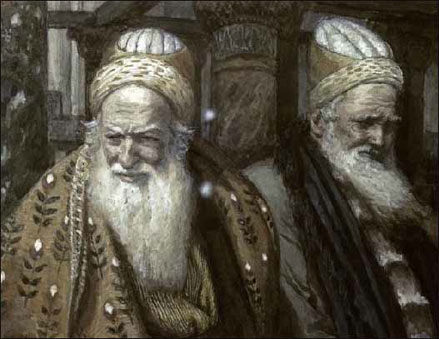Envy and the Sons of God
“Paul knew his kinsmen. This is a group of people on whom this tactic would work.”
Doug Wilson has been preaching through Romans (subscribe to his podcast now!) and recently commented on his blog about Romans 11, and the relationship between Christians and Jews today.[1] I’ll have to listen to his sermon to figure out whether Doug sees this as interpretation (“all Israel” is yet to be saved), or application.
I made some comments and a gent called Lemuel replied, and I made some more. It brings out the significance of the phrase “the sons of God.”
Mike:
There are no longer any Jews – or Gentiles – in God’s economy. That went out with Circumcision. So did the provocation. God made a short work on the Land.
Doesn’t mean there won’t be (or isn’t currently) a time when many Jews will convert. It’s just not what Paul’s talking about in Romans.
I think Jordan’s essay The Future of Israel Re-examined, although controversial, covers Jewish history, identity and eschatology very well. And it makes sense of Romans.
Any application of this to post AD70 “Jews” is exactly that – application.
Lemuel:
To say that Jews (Judaeans) and Gentiles no longer exist in God’s economy because in the church they are united is kind of like saying that men and women don’t exist in God’s economy because of Galatians 3:28. Admittedly, the usage of “Jew” varies. There is the inward Jew, whose heart is circumcised. There is the Gentile who gets fleshly circumcision. And then there is the genetic Israelite, the descendant of Israel – the way in which tribes/ethnic groups are identified, just as Amalekites descend from Amalek, Semites descend from Shem, etc. One of the groups discussed in Romans is ethnic Israel, Paul’s kinsmen according to the flesh, his race. None of this would necessarily rule out a 70 A.D. fulfillment, but I think Christians spend too much time pretending that racial groups don’t exist.
Mike:
Good point, but Galatians 3:28 is not the argument. There were Jews and Gentiles in the church together before AD70. The writer of Hebrews insisted that they keep meeting together (in defiance of those who were falling back into old habits?) as they saw the Day approaching. After that Day, it was no longer an issue.
Although we do need to accommodate for racial groups, the Judaism Paul was dealing with no longer exists. As the apostles kept preaching (and dying), the unconverted Jews (and the apostates) hardened their hearts like Pharaoh. During this period of “plagues”, Judaism became something else entirely — a synagogue of Satan.
In context, Paul is not dealing with “racial” Jews at all, but with their calling as mediators to the nations. This calling was the reason that the judgment for all the innocent blood shed from Abel fell upon that generation. Both the blessings and the curses of their Covenant calling were irrevocable. But that calling ended with the Old Covenant when it finally passed away with the Temple.
In the first part of Romans 11, Paul follows the pattern of Israel’s feasts, ending with the “branches” of Tabernacles. See Seven Thousand Who Have Not Bowed to Baal – 2.The book of Ruth also follows this pattern. The “fullness” of the Gentiles came in in the first century, just as Ruth came into the Covenant and bore Obed on barren Naomi’s lap. [2] So does the account of Noah: “Gentile” beasts substitute for the faithless “branches” who died in the flood. [3] And AD70 was a flood (Dan 9:26; Matt 24:37-38). Notice that the sin of the “sons of God” (those with the priestly calling) in Genesis 6, in Ruth, and in Matthew 24 is ungodly “intermarriage”.
AD70 revealed who were the true “sons of God.” It wasn’t the Circumcision. (Romans 8:14-19; John 1:12; Phil 2:15; 1 John 3:1;-2).
The context of Romans 11 is the imminent judgment of Herodian worship and the end of the Jews. As much as it distressed Paul, God’s wisdom in this process of “jealous inspection” blew him away (Numbers 5; Rev. 14:10). By AD70 it was all over.
One more comment. This would also mean that those with the title “the sons of God” in Job were not angels but priestly, mediatorial men (an obervation I have heard from Gary DeMar). Satan envied them, accused them, as he always does. They are Adams in the garden, Covenant heads, and he hates them. Job was a priest-king.[4]
____________________________________________________________
[1] Preliminary Thoughts on Envy and the Jews.
[2] See Fairy Tale in a Field and Feasts in Matthew 13 for more on this.
[3] This gives greater significance to the dove’s olive branch. Concerning Noah’s animals and their use in Isaiah, see The Wolf and the Lamb.
[4] See Jordan’s Was Job an Edomite King? Part 1 and Part 2.



























January 27th, 2010 at 2:47 am
I’ve heard this explanation of Job, based largely on Hebrews 2 where it says that God didn’t refer to any angel as a “son of God.” But I still haven’t heard a good explanation for Job 38:7.